- Home
- Roald Dahl
Innocence Page 12
Innocence Read online
Page 12
Soon the maid came forward with the second course. This was a large roast of beef. She placed it on the table in front of Mike, who stood up and carved it, cutting the slices very thin, laying them gently on the plates for the maid to take around. When he had served everyone, including himself, he put down the carving knife and leaned forward with both hands on the edge of the table.
‘Now,’ he said, speaking to all of us but looking at Richard Pratt. ‘Now for the claret. I must go and fetch the claret, if you’ll excuse me.’
‘You go and fetch it, Mike?’ I said. ‘Where is it?’
‘In my study, with the cork out – breathing.’
‘Why the study?’
‘Acquiring room temperature, of course. It’s been there twenty-four hours.’
‘But why the study?’
‘It’s the best place in the house. Richard helped me choose it last time he was here.’
At the sound of his name, Pratt looked around.
‘That’s right, isn’t it?’ Mike said.
‘Yes,’ Pratt answered, nodding gravely. ‘That’s right.’
‘On top of the green filing cabinet in my study,’ Mike said. ‘That’s the place we chose. A good draught-free spot in a room with an even temperature. Excuse me now, will you, while I fetch it.’
The thought of another wine to play with had restored his humour, and he hurried out the door, to return a minute later more slowly, walking softly, holding in both hands a wine basket in which a dark bottle lay. The label was out of sight, facing downwards. ‘Now!’ he cried as he came towards the table. ‘What about this one, Richard? You’ll never name this one!’
Richard Pratt turned slowly and looked up at Mike; then his eyes travelled down to the bottle nestling in its small wicker basket, and he raised his eyebrows, a slight, supercilious arching of the brows, and with it a pushing outwards of the wet lower lip, suddenly imperious and ugly.
‘You’ll never get it,’ Mike said. ‘Not in a hundred years.’
‘A claret?’ Richard Pratt asked, condescending.
‘Of course.’
‘I assume, then, that it’s from one of the smaller vineyards?’
‘Maybe it is. Richard. And then again, maybe it isn’t.’
‘But it’s a good year? One of the great years?’
‘Yes, I guarantee that.’
‘Then it shouldn’t be too difficult,’ Richard Pratt said, drawling his words, looking exceedingly bored. Except that, to me, there was something strange about his drawling and his boredom: between the eyes a shadow of something evil, and in his bearing an intentness that gave me a faint sense of uneasiness as I watched him.
‘This one is really rather difficult,’ Mike said. ‘I won’t force you to bet on this one.’
‘Indeed. And why not?’ Again the slow arching of the brows, the cool, intent look.
‘Because it’s difficult.’
‘That’s not very complimentary to me, you know.’
‘My dear man,’ Mike said, ‘I’ll bet you with pleasure, if that’s what you wish.’
‘It shouldn’t be too hard to name it.’
‘You mean you want to bet?’
‘I’m perfectly willing to bet,’ Richard Pratt said.
‘All right, then, we’ll have the usual. A case of the wine itself.’
‘You don’t think I’ll be able to name it, do you?’
‘As a matter of fact, and with all due respect, I don’t,’ Mike said. He was making some effort to remain polite, but Pratt was not bothering overmuch to conceal his contempt for the whole proceeding. And yet, curiously, his next question seemed to betray a certain interest.
‘You like to increase the bet?’
‘No, Richard. A case is plenty.’
‘Would you like to bet fifty cases?’
‘That would be silly.’
Mike stood very still behind his chair at the head of the table, carefully holding the bottle in its ridiculous wicker basket. There was a trace of whiteness around his nostrils now, and his mouth was shut very tight.
Pratt was lolling back in his chair, looking up at him, the eyebrows raised, the eyes half closed, a little smile touching the corners of his lips. And again I saw, or thought I saw, something distinctly disturbing about the man’s face, that shadow of intentness between the eyes, and in the eyes themselves, right in their centres where it was black, a small slow spark of shrewdness, hiding.
‘So you don’t want to increase the bet?’
‘As far as I’m concerned, old man, I don’t give a damn,’ Mike said. ‘I’ll bet you anything you like.’
The three women and I sat quietly, watching the two men. Mike’s wife was becoming annoyed; her mouth had gone sour and I felt that at any moment she was going to interrupt. Our roast beef lay before us on our plates, slowly steaming.
‘So you’ll bet me anything I like?’
‘That’s what I told you. I’ll bet you anything you damn well please, if you want to make an issue out of it.’
‘Even ten thousand pounds?’
‘Certainly I will, if that’s the way you want it.’ Mike was more confident now. He knew quite well that he could call any sum Pratt cared to mention.
‘So you say I can name the bet?’ Pratt asked again.
‘That’s what I said.’
There was a pause while Pratt looked slowly around the table, first at me, then at the three women, each in turn. He appeared to be reminding us that we were witness to the offer.
‘Mike!’ Mrs Schofield said. ‘Mike, why don’t we stop this nonsense and eat our food. It’s getting cold.’
‘But it isn’t nonsense,’ Pratt told her evenly. ‘We’re making a little bet.’
I noticed the maid standing in the background holding a dish of vegetables, wondering whether to come forward with them or not.
‘All right, then,’ Pratt said. ‘I’ll tell you what I want you to bet.’
‘Come on, then,’ Mike said, rather reckless. ‘I don’t give a damn what it is – you’re on.’
Pratt nodded, and again the little smile moved the corners of his lips, and then, quite slowly, looking at Mike all the time, he said, ‘I want you to bet me the hand of your daughter in marriage.’
Louise Schofield gave a jump. ‘Hey!’ she cried. ‘No! That’s not funny! Look here, Daddy, that’s not funny at all.’
‘No, dear,’ her mother said. ‘They’re only joking.’
‘I’m not joking,’ Richard Pratt said.
‘It’s ridiculous,’ Mike said. He was off balance again now.
‘You said you’d bet anything I liked.’
‘I meant money.’
‘You didn’t say money.’
‘That’s what I meant.’
‘Then it’s a pity you didn’t say it. But anyway, if you wish to go back on your offer, that’s quite all right with me.’
‘It’s not a question of going back on my offer, old man. It’s a no-bet anyway, because you can’t match the stake. You yourself don’t happen to have a daughter to put up against mine in case you lose. And if you had, I wouldn’t want to marry her.’
‘I’m glad of that, dear,’ his wife said.
‘I’ll put up anything you like,’ Pratt announced. ‘My house, for example. How about my house?’
‘Which one?’ Mike asked, joking now.
‘The country one.’
‘Why not the other one as well?’
‘All right then, if you wish it. Both my houses.’
At that point I saw Mike pause. He took a step forward and placed the bottle in its basket gently down on the table. He moved the salt-cellar to one side, then the pepper, and then he picked up his knife, studied the blade thoughtfully for a moment, and put it down again. His daughter, too, had seen him pause.
‘Now, Daddy!’ she cried. ‘Don’t be absurd! It’s too silly for words. I refuse to be betted on like this.’
‘Quite right, dear,’ her mother said. ‘Stop it at once, Mike, and sit d
own and eat your food.’
Mike ignored her. He looked over at his daughter and he smiled, a slow, fatherly, protective smile. But in his eyes, suddenly, there glimmered a little triumph. ‘You know,’ he said, smiling as he spoke. ‘You know, Louise, we ought to think about this a bit.’
‘Now, stop it, Daddy! I refuse even to listen to you! Why, I’ve never heard anything so ridiculous in my life!’
‘No, seriously, my dear. Just wait a moment and hear what I have to say.’
‘But I don’t want to hear it.’
‘Louise! Please! It’s like this. Richard here has offered us a serious bet. He is the one who wants to make it, not me. And if he loses, he will have to hand over a considerable amount of property. Now, wait a minute, my dear, don’t interrupt. The point is this. He cannot possibly win.’
‘He seems to think he can.’
‘Now listen to me, because I know what I’m talking about. The expert, when tasting a claret – so long as it is not one of the famous great wines like Lafite or Latour – can only get a certain way towards naming the vineyard. He can, of course, tell you the Bordeaux district from which the wine comes, whether it is from St Emilion, Pomerol, Graves, or Médoc. But then each district has several communes, little counties, and each county has many, many small vineyards. It is impossible for a man to differentiate between them all by taste and smell alone. I don’t mind telling you that this one I’ve got here is a wine from a small vineyard that is surrounded by many other small vineyards, and he’ll never get it. It’s impossible.’
‘You can’t be sure of that,’ his daughter said.
‘I’m telling you I can. Though I say it myself, I understand quite a bit about this wine business, you know. And anyway, heavens alive, girl, I’m your father and you don’t think I’d let you in for – for something you didn’t want, do you? I’m trying to make you some money.’
‘Mike!’ his wife said sharply. ‘Stop it now, Mike, please!’
Again he ignored her. ‘If you will take this bet,’ he said to his daughter, ‘in ten minutes you will be the owner of two large houses.’
‘But I don’t want two large houses, Daddy.’
‘Then sell them. Sell them back to him on the spot. I’ll arrange all that for you. And then, just think of it, my dear, you’ll be rich! You’ll be independent for the rest of your life!’
‘Oh, Daddy, I don’t like it. I think it’s silly.’
‘So do I,’ the mother said. She jerked her head briskly up and down as she spoke, like a hen. ‘You ought to be ashamed of yourself, Michael, ever suggesting such a thing! Your own daughter, too!’
Mike didn’t even look at her. ‘Take it!’ he said eagerly, staring hard at the girl. ‘Take it, quick! I’ll guarantee you won’t lose.’
‘But I don’t like it, Daddy.’
‘Come on, girl. Take it!’
Mike was pushing her hard. He was leaning towards her, fixing her with two hard bright eyes, and it was not easy for the daughter to resist him.
‘But what if I lose?’
‘I keep telling you, you can’t lose. I’ll guarantee it.’
‘Oh, Daddy, must I?’
‘I’m making you a fortune. So come on now. What do you say, Louise? All right?’
For the last time, she hesitated. Then she gave a helpless little shrug of the shoulders and said, ‘Oh all right then. Just so long as you swear there’s no danger of losing.’
‘Good!’ Mike cried. ‘That’s fine! Then it’s a bet!’
‘Yes,’ Richard Pratt said, looking at the girl. ‘It’s a bet.’
Immediately, Mike picked up the wine, tipped the first thimbleful into his own glass, then skipped excitedly around the table filling up the others. Now everyone was watching Richard Pratt, watching his face as he reached slowly for his glass with his right hand and lifted it to his nose. The man was about fifty years old and he did not have a pleasant face. Somehow, it was all mouth – mouth and lips – the full, wet lips of the professional gourmet, the lower lip hanging downwards in the centre, a pendulous, permanently open taster’s lip, shaped open to receive the rim of a glass or a morsel of food. Like a keyhole, I thought, watching it; his mouth is like a large wet keyhole.
Slowly he lifted the glass to his nose. The point of the nose entered the glass and moved over the surface of the wine, delicately sniffing. He swirled the wine gently around in the glass to receive the bouquet. His concentration was intense. He had closed his eyes, and now the whole top half of his body, the head and neck and chest, seemed to become a kind of huge sensitive smelling-machine, receiving, filtering, analysing the message from the sniffing nose.
Mike, I noticed, was lounging in his chair, apparently unconcerned, but he was watching every move. Mrs Schofield, the wife, sat prim and upright at the other end of the table, looking straight ahead, her face tight with disapproval. The daughter, Louise, had shifted her chair away a little, and sidewise, facing the gourmet, and she, like her father, was watching closely.
For at least a minute, the smelling process continued; then, without opening his eyes or moving his head, Pratt lowered the glass to his mouth and tipped in almost half the contents. He paused, his mouth full of wine, getting the first taste; then he permitted some of it to trickle down his throat and I saw his Adam’s apple move as it passed by. But most of it he retained in his mouth. And now, without swallowing again, he drew in through his lips a thin breath of air which mingled with the fumes of the wine in the mouth and passed on down into his lungs. He held the breath, blew it out through his nose, and finally began to roll the wine around under the tongue, and chewed it, actually chewed it with his teeth as though it were bread.
It was a solemn, impressive performance, and I must say he did it well.
‘Um,’ he said, putting down the glass, running a pink tongue over his lips. ‘Um – yes. A very interesting little wine – gentle and gracious, almost feminine in the after taste.’
There was an excess of saliva in his mouth, and as he spoke he spat an occasional bright speck of it on to the table.
‘Now we can start to eliminate,’ he said. ‘You will pardon me for doing this carefully, but there is much at stake. Normally I would perhaps take a bit of a chance, leaping forward quickly and landing right in the middle of the vineyard of my choice. But this time – I must move cautiously this time, must I not?’ He looked up at Mike and he smiled, a thick-lipped, wet-lipped smile. Mike did not smile back.
‘First, then, which district in Bordeaux does this wine come from? That is not too difficult to guess. It is far too light in the body to be from either St Emilion or Graves. It is obviously a Médoc. There’s no doubt about that.
‘Now – from which commune in Médoc does it come? That also, by elimination, should not be too difficult to decide. Margaux? No. It cannot be Margaux. It has not the violent bouquet of a Margaux. Pauillac? It cannot be Pauillac, either. It is too tender, too gentle and wistful for a Pauillac. The wine of Pauillac has a character that is almost imperious in its taste. And also, to me, a Pauillac contains just a little pith, a curious, dusty, pithy flavour that the grape acquires from the soil of the district. No, no. This – this is a very gentle wine, demure and bashful in the first taste, emerging shyly but quite graciously in the second. A little arch, perhaps, in the second taste, and a little naughty also, teasing the tongue with a trace, just a trace, of tannin. Then, in the after taste, delightful – consoling and feminine, with a certain blithely generous quality that one associates only with the wines of the commune of St Julien. Unmistakably this is a St Julien.’
He leaned back in his chair, held his hands up level with his chest, and placed the fingertips carefully together. He was becoming ridiculously pompous, but I thought that some of it was deliberate, simply to mock his host. I found myself waiting rather tensely for him to go on. The girl Louise was lighting a cigarette. Pratt heard the match strike and he turned on her, flaring suddenly with real anger. ‘Please!’ he said. ‘Please
don’t do that! It’s a disgusting habit, to smoke at table.’
She looked up at him, still holding the burning match in one hand, the big slow eyes settling on his face, resting there a moment, moving away again, slow and contemptuous. She bent her head and blew out the match, but continued to hold the unlighted cigarette in her fingers.
‘I’m sorry, my dear,’ Pratt said, ‘but I simply cannot have smoking at table.’
She didn’t look at him again.
‘Now, let me see – where were we?’ he said. ‘Ah, yes. This wine is from Bordeaux, from the commune of St Julien, in the district of Médoc. So far, so good. But now we come to the more difficult part – the name of the vineyard itself. For in St Julien there are many vineyards, and as our host so rightly remarked earlier on, there is often not much difference between the wine of one and the wine of another. But we shall see.’
He paused again, closing his eyes. ‘I am trying to establish the “growth”,’ he said. ‘If I can do that, it will be half the battle. Now, let me see. This wine is obviously not from a first-growth vineyard – nor even a second. It is not a great wine. The quality, the – the – what do you call it? – the radiance, the power, is lacking. But a third growth – that it could be. And yet I doubt it. We know it is a good year – our host has said so – and this is probably flattering it a little bit. I must be careful. I must be very careful here.’
He picked up his glass and took another small sip.
‘Yes,’ he said, sucking his lips, ‘I was right. It is a fourth growth. Now I am sure of it. A fourth growth from a very good year – from a great year, in fact. And that’s what made it taste for a moment like a third- or even a second-growth wine. Good! That’s better! Now we are closing in! What are the fourth-growth vineyards in the commune of St Julien?’
Again he paused, took up his glass, and held the rim against that sagging pendulous lower lip of his. Then I saw the tongue shoot out, pink and narrow, the tip of it dipping into the wine, withdrawing swiftly again – a repulsive sight. When he lowered the glass, his eyes remained closed, the face concentrated, only the lips moving, sliding over each other like two pieces of wet, spongy rubber.
‘There it is again!’ he cried. ‘Tannin in the middle taste, and the quick astringent squeeze upon the tongue. Yes, yes, of course! Now I have it! This wine comes from one of those small vineyards around Beychevelle. I remember now. The Beychevelle district, and the river and the little harbour that has silted up so the wine ships can no longer use it. Beychevelle … could it actually be a Beychevelle itself? No, I don’t think so. Not quite. But it is somewhere very close. Château Talbot? Could it be Talbot? Yes, it could. Wait one moment.’

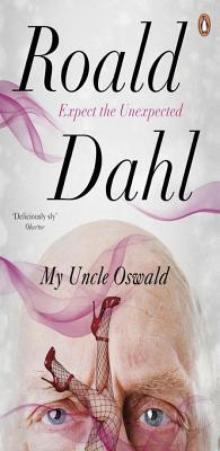 My Uncle Oswald
My Uncle Oswald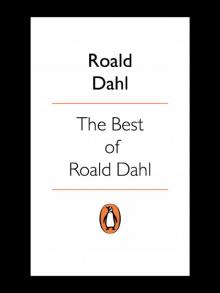 The Best of Roald Dahl
The Best of Roald Dahl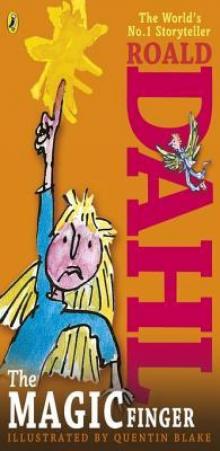 The Magic Finger
The Magic Finger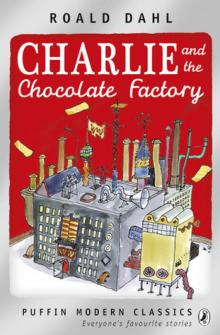 Charlie and the Chocolate Factory
Charlie and the Chocolate Factory Fantastic Mr Fox
Fantastic Mr Fox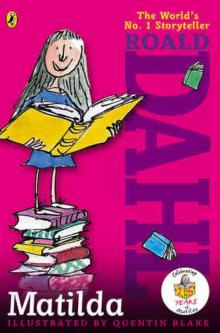 Matilda
Matilda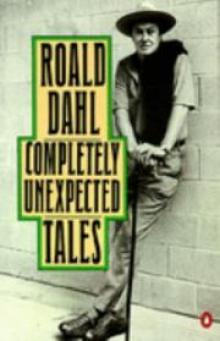 Completely Unexpected Tales: Tales of the Unexpected. More Tales of the Unexpected
Completely Unexpected Tales: Tales of the Unexpected. More Tales of the Unexpected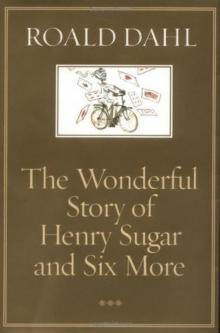 The Wonderful Story of Henry Sugar and Six More
The Wonderful Story of Henry Sugar and Six More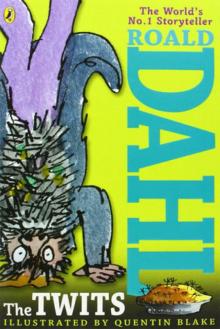 The Twits
The Twits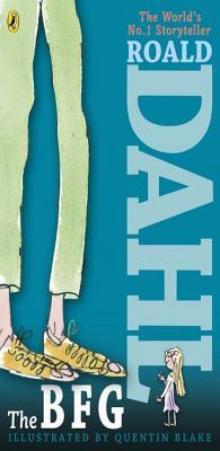 The BFG
The BFG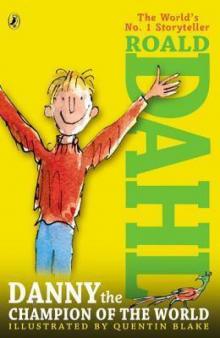 Danny the Champion of the World
Danny the Champion of the World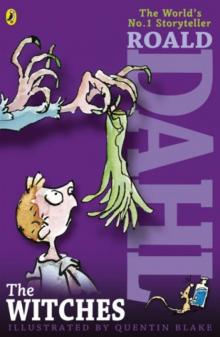 The Witches
The Witches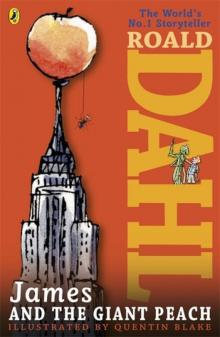 James and the Giant Peach
James and the Giant Peach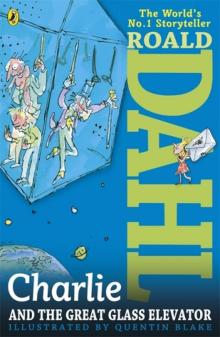 Charlie and the Great Glass Elevator
Charlie and the Great Glass Elevator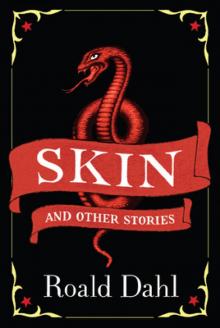 Skin and Other Stories
Skin and Other Stories Kiss Kiss
Kiss Kiss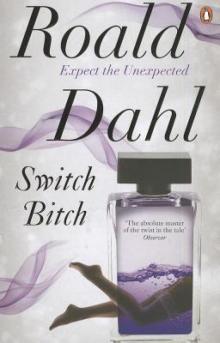 Switch Bitch
Switch Bitch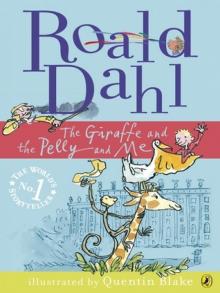 The Giraffe and the Pelly and Me
The Giraffe and the Pelly and Me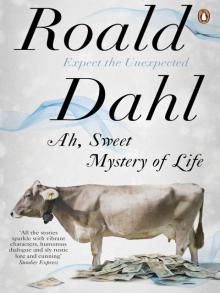 Ah, Sweet Mystery of Life
Ah, Sweet Mystery of Life Fear
Fear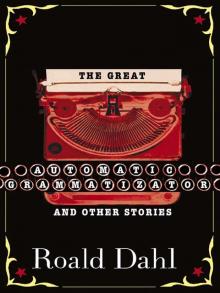 The Great Automatic Grammatizator and Other Stories
The Great Automatic Grammatizator and Other Stories Someone Like You
Someone Like You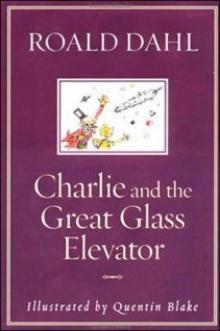 Charlie and the Great Glass Elevator c-2
Charlie and the Great Glass Elevator c-2 More About Boy
More About Boy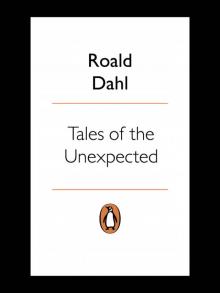 Tales of the Unexpected
Tales of the Unexpected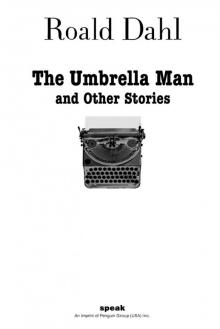 The Umbrella Man and Other Stories
The Umbrella Man and Other Stories Dirty Beasts
Dirty Beasts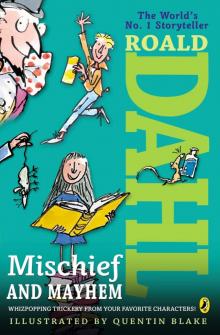 Roald Dahl's Mischief and Mayhem
Roald Dahl's Mischief and Mayhem The Collected Short Stories of Roald Dahl, Volume 1
The Collected Short Stories of Roald Dahl, Volume 1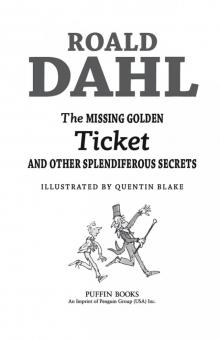 The Missing Golden Ticket and Other Splendiferous Secrets
The Missing Golden Ticket and Other Splendiferous Secrets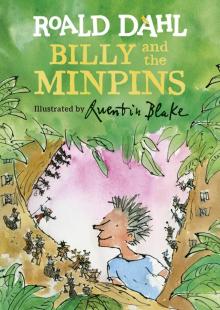 Billy and the Minpins
Billy and the Minpins Over to You
Over to You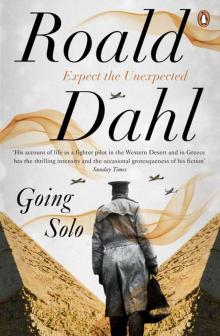 Going Solo
Going Solo Deception
Deception War
War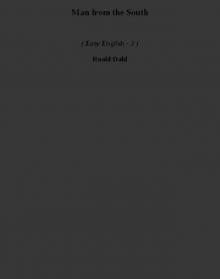 Man from the South ee-3
Man from the South ee-3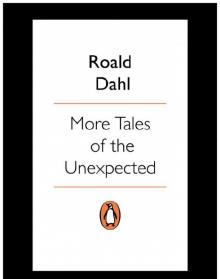 More Tales of the Unexpected
More Tales of the Unexpected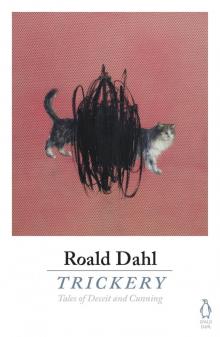 Trickery
Trickery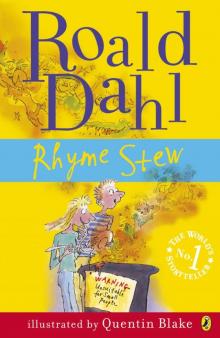 Rhyme Stew
Rhyme Stew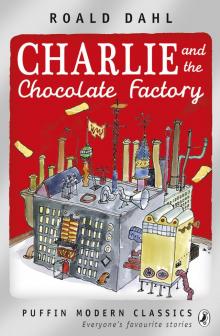 Charlie and the Chocolate Factory (Puffin Modern Classics relaunch)
Charlie and the Chocolate Factory (Puffin Modern Classics relaunch)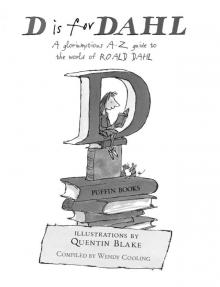 D is for Dahl
D is for Dahl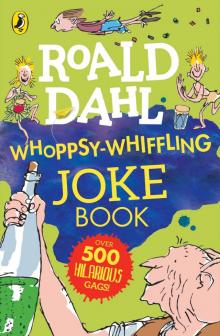 Roald Dahl Whoppsy-Whiffling Joke Book
Roald Dahl Whoppsy-Whiffling Joke Book Spotty Powder and other Splendiferous Secrets
Spotty Powder and other Splendiferous Secrets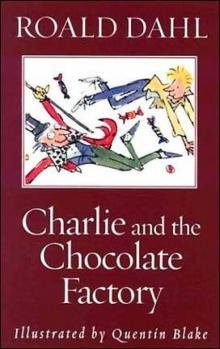 Charlie and the Chocolate Factory c-1
Charlie and the Chocolate Factory c-1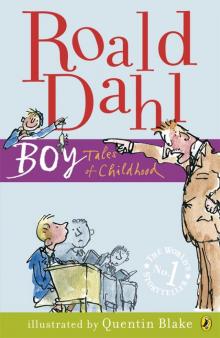 Boy
Boy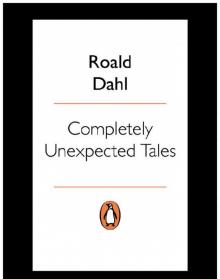 Completely Unexpected Tales
Completely Unexpected Tales Madness
Madness Innocence
Innocence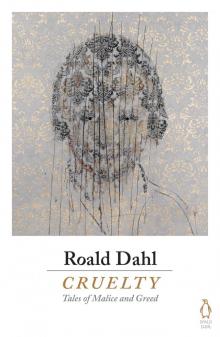 Cruelty
Cruelty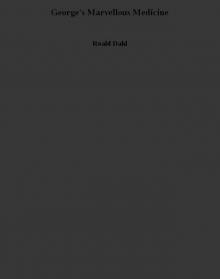 George's Marvellous Medicine
George's Marvellous Medicine